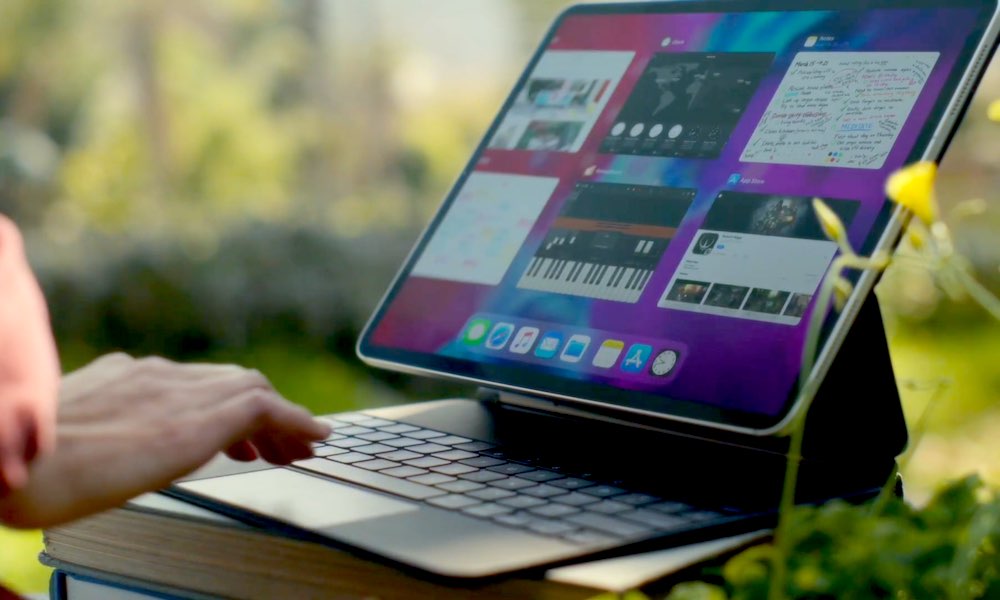The New iPad Pro Doesn’t Have a U1 Chip, But It Does Have This Other Cool Security Feature
 Credit: Apple
Credit: Apple
Toggle Dark Mode
Although Apple’s newest iPad Pro is a fantastic device, it is by all estimations a modest upgrade from the 2018 model, adding relatively few new features beyond the additional cameras — which still fall short of the iPhone 11 — and a new LiDAR scanner. The new A12Z CPU is only a slight bump over the 2018 A12X, and other new features like mouse and trackpad support, and even Apple’s new Magic Keyboard, are all available for the older model as well.
Shortly after the new iPad Pro debuted last month we pored through the spec sheets looking to see what else was new, finding that it didn’t appear to have a U1 chip either, which we had sort of expected would have come over from the iPhone 11. However, a subsequent report by 9to5Mac gave us a glimmer of hope in suggesting that the chip could be in there after all, since code in iOS 13.4 made reference to it, but after an iFixit teardown made no mention of it, we were left scratching our collective heads.
Unfortunately, last week MacRumors gathered some pretty compelling evidence suggesting that the U1 chip wasn’t merely hiding, but actually wasn’t there at all. Since 9to5Mac had only found indications in the iOS 13.4 code, there was really no guarantee that Apple had ever really even planned to include the chip, much less actually done so.
As MacRumors pointed out, there was the fact that iFixit didn’t notice it when doing one of their typically meticulous teardowns, plus no evidence of the AirDrop directional feature on the new iPad Pro, nor any toggle switching in the settings, which Apple added to iPhones in iOS 13.3.1 to address a location privacy issue.
Still, some had speculated that Apple had the chip in there but simply left it disabled, but FCC filings for the new iPad Pro remain virtually identical to the prior model, not showing any information regarding the frequency ranges the U1 chip normally operates on.
In the end, John Gruber of Daring Fireball confirmed with one of his sources “who would certainly know the answer” that there is no U1 chip in the new iPad Pro. iFixit also confirmed this after it finished removing the RF shielding from the logic board, noting that it doesn’t see any sign of what could be a U1 chip, nor are there any of the antennas that would normally be required to support it.
As MacRumors adds, it’s entirely possible that the lack of a U1 chip wasn’t arbitrary on Apple’s part. It could be dependent on the newer and more powerful A13 chip found in the iPhone 11, and would also potentially require a redesign of the iPad Pro logic board and possibly even some more substantial changes to the metal chassis.
What This Means
For now at least, it looks like Apple is going to continue limiting the benefits of the U1 chip and its Ultra Wideband technology to the iPhone. Since the feature is only used to support directional AirDrop right now, that’s probably not a huge loss, although it does mean that even when Apple does release its new AirTags location trackers, iPad Pro users won’t be able to benefit from the more precise tracking of a missing item within a room — you’ll still need to use an iPhone for that.
There are other technologies that the U1 chip will also eventually be able to plug into, such as indoor navigation, but these are far enough out in the future that Apple certainly has time to add the U1 chip to future models if it wants iPad users to be able to participate.
A New Privacy Feature
That said, it’s not all bad news, as another report earlier this week reveals that Apple has snuck in a pretty important privacy feature into the new iPad Pro.
An updated entry in Apple’s Platform Security Guide discovered by 9to5Mac notes that the 2020 iPad Pro now includes a “hardware microphone disconnect” feature that was previously only available on T2-equipped Macs.
As Apple notes, “When an MFI compliant case (including those sold by Apple) is attached to the iPad and closed, the microphone is disconnected in hardware, preventing microphone audio data being made available to any software.” This is a hardware-level disconnection that makes it physically impossible for any malware or other app to potentially eavesdrop on a user. So even if Apple’s own software encountered another serious privacy bug, it would not be possible for others to spy on your conversations — as long as your iPad Pro cover is closed, of course.
While Apple doesn’t spell out what an “MFI compliant case” means, exactly, this likely refers to those cases that include magnets in the cover to let the iPad detect when the cover is closed over the screen. This would be the only way that the iPad Pro could actually know that the cover is closed and the microphone should therefore be disconnected. While this feature only applies to the microphone, Apple presumably feels it’s not necessary to implement a hardware disconnect for the camera considering that it would be blocked when the cover is closed anyway.
It also doesn’t look like this will be limited to the iPad Pro only, as Apple’s guide says that “iPad models beginning in 2020 also feature the hardware microphone disconnect,” so we can probably expect it to arrive on all new iPad models that Apple releases from this point forward.






